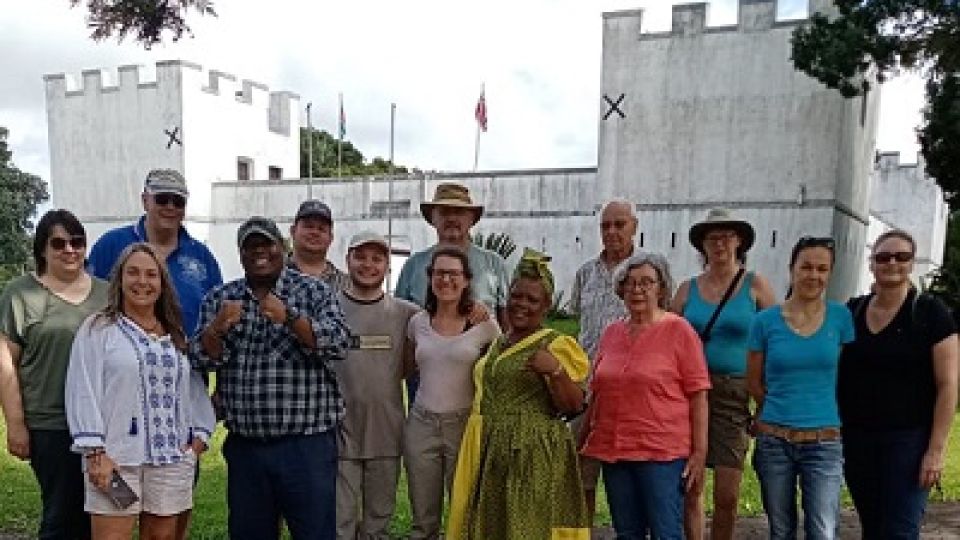from FUTHI MBHELE in Durban
KwaZulu Natal Bureau
DURBAN, (CAJ News) – THERE is immense interest in the culture and history of the Zulu people internationally.
This peaked this week as visitors from some European countries visited the Fort Nongqayi Museum Village.
It is a bastion of the culture of history of the Zulu, the single largest ethnic group in South Africa.
“It has rich history. It is a busy museum,” said tour guide, Thabani Ntuli, in an interview with CAJ News Africa.
“International tourists like to visit our museum. On Monday, we had some 16 tourists from France. On Tuesday morning, we also had visitors from Germany,” Ntuli added.
He said although visitors were not many as during pre-pandemic levels, they were coming back.
“It was difficult during the COVID-19 pandemic, our restaurant was shut down. We lost so many tourists but now things are picking up,” Ntuli said.
This open-air museum offers a glimpse into the traditional Zulu way of life through its exhibits of traditional homesteads, cultural artifacts and interactive activities.
Located in Eshowe in the heart of Zululand, the Fort Nongqayi offers a rich and extensive view of the history of the area and South Africa. Eshowe is a town rich with history and culture.
The British built the museum in 1883 to house the Zulu Native policemen, called Nongqayi. It was completed in 1894.
The Zulu Native policemen fought with bravery at the Battle of Ceza and Hlophekhulu in 1888 and during King Dinuzulu’s uprising, and also took part during the Anglo-Boer War in 1899 to 1902.
The museum started operating in 1960.
– CAJ News

